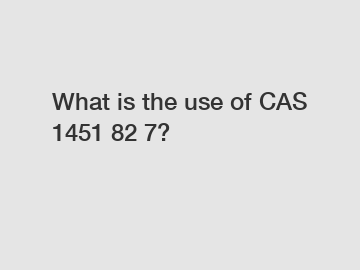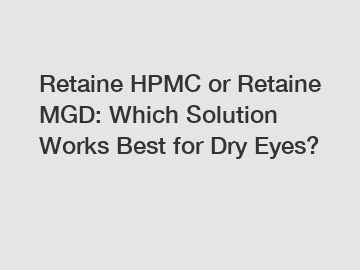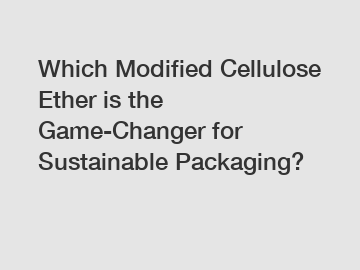HPMC is important for tile adhesive. Why?
HPMC is important for tile adhesive. Why?
Read more HPMC can improve product functionality very well, and is now widely used in the construction industry, especially in tile adhesives. Tile adhesive is a new modern decoration material used for pasting decorative materials such as ceramic tiles, surface tiles, and floor tiles. Is made up of cement, sand, calcium formate, and additives in a particular proportion. It has the advantages of high adhesion, good flexibility, and so on. There are many kinds of additives in tile adhesive, but cellulose ether additives (especially hpmc and hemc) that can improve water retention, thickening effect and open time are usually added to tile adhesive. So choosing a good tile adhesive can significantly improve your work efficiency and the aesthetics of the final result. We’ve put together this handy guide to help you . There’s two different types of tile adhesive, ready mixed pastes and powdered adhesives. As the name suggests, ready mixed pastes can be used straight so they’re pretty easy to use. But with ease comes limitations. In general, pastes can only be used to fix smaller ceramic tiles to walls. On the other hand, powdered adhesives need to be mixed with water into a slurry which takes a little more time and effort. However, they offer a far stronger bond and in general, can be used to fit ceramic, porcelain and natural stone tiles to almost any substrate. It is worth mentioning that, hpmc is an important additive to enhance the viscosity of tile adhesive. Generally, the higher the viscosity of the HPMC solution, the better the viscosity of the tile adhesive and the better the adhesion to the substrate. The viscosity of HPMC generally refers to a particular concentration (2%) of HPMC solution, at a specified temperature (20°C) and shear rate (or rotation rate, such as 20rpm), the viscosity value measured with a specified measuring instrument. Even in your home, floor tiles experience a lot of stress from foot traffic, underfloor heating and movement in the subfloor. The adhesive bed can absorb this stress to reduce the chances of your new floor cracking; the more deformable (or flexible) the adhesive, the more peace of mind you’ll have. Powdered adhesives are often classified as either ‘standard’ or ‘rapid’ setting – this refers to the working time you have to use the product. The faster the adhesive sets, the sooner you can get onto grouting and finishing your room. However, there’s plenty of times when you’ll prefer to use an adhesive with a longer opening time – when laying large format tiles to a wall and you want to ensure a flawless finish. If you’re looking to install either wet or electric underfloor heating, it’s vital that you use a flexible tile adhesive. The heating and cooling processes generate considerable stresses and a flexible adhesive will absorb these, reducing the chances of your tiles cracking over time. However, we’d really recommend using a self-levelling compound to cover the cables and provide a perfectly flat surface to tile onto. Absorbent surfaces such as plaster can suck the water out of the tile adhesive, reducing the bond strength and working time. It is very necessary to choose tile adhesive with good water retention. Of course, the performance I mentioned here can be improved by adding hpmc to achieve the final effect you want. HPMC is playing an essential role in tile adhesives to improve the key properties like water retention, slip resistance, and workability, etc. It has thickening, adhesion ,dispersing, emulsifying, film, suspended, adsorption, gel, and protetive colloid properties of surface activity and maintain moisture function properties ect. Is used for wall putty, tile adhesive, cement mortar, dry mix mortar, wall plaster, skim coat, mortar, concrete admixtures, cement, gypsum plaster, joints fillers, crack filler, etc. Now! Through the above explanation, briefly summarize the benefits of adding hpmc to tile adhesive: Obviously, adding hpmc to tile adhesive is very necessary. With competitive price and timely delivery, Ding’ao sincerely hope to be your supplier and partner.What types of tile adhesive are there?
How to choose tile adhesive?
Flexibility
Open Time/Setting Time
Underfloor Heating
Primer
Are there any other benefits of adding hpmc?
Revolutionizing Clean Energy: Discover Tsaker's Innovative Solutions
What are the properties of RD powder?
What are the characteristics of C4F8 gas?
What is vinnapas 8034 h used for?
Unlocking the Secrets of Chemical Compound 663172-78-9
What is the use of HPMC polymer?
The ultimate guide on HPMC and how to buy ?
According to the application field , HPMC is divided into construction-grade HPMC, daily chemical-grade HPMC, food-grade HPMC, and pharmaceutical-grade HPMC. The tile adhesive uses HPMC and belongs to the building material grade.
Viscosity is an indispensable indicator of HPMC. According to different viscosity, HPMC can be divided into three grades: low, medium and high, and because of the other properties of hpmc, we have further subdivided many grades.
For details, please refer to here. If you want to buy hpmc, you can contact us here.
MikaZone™ cellulose ether products (HPMC,HEMC,RDP&HEC) can ensure the smooth construction of different types of tiles on various substrates, even if the ambient temperature is relatively high. It can also offer the tile adhesive a long enough open time for adjustment.
We are the excellent hpmc (hydroxypropyl methylcellulose) supplier for tile adhesive. If you have problem, please contact to us. We will offer you competitive price and professional services.
The application of MikaZone™ hpmc products can effectively improve the quality of tile adhesives.
HPMC For Tile Adhesive CAS9004-65-3
Product Description
HPMC CAS9004-65-3 is a high-quality cellulose ether that is widely used in the construction industry, especially in tile adhesive applications. HPMC for tile adhesive acts as a thickener, water retention agent, and binder, which enhances the performance and workability of tile adhesive products. Tile adhesives contain cement, sand and other additives. Hydroxypropyl cellulose ether hpmc with water repellent thickening cellulose ether. Redispersible polymer powders increase the adhesion of tile ceramics.
Hydroxypropyl Methyl Cellulose HPMC
COMMON NAME HYDROXYPROPYL METHYL CELLULOSE ABBREVIATION HPMC CAS NO. 9004-65-3 STANDARDS COMPLIANT ENTERPRISE STANDARD CHEMICAL FORMULA R=CH2CH(CH3)OH
HPMC for tile adhesive features:
* Improve thermal stability Reduce cement hydration delay
* Excellent slip resistance Improves rheology of plaster
* Good consistency, crack resistance, shrinkage resistance, good machinability
* HPMC tile adhesive has good water retention, greatly improves the water retention capacity, and inhibits a large amount of water loss from super absorbent tiles and substrates.
* Enough water in the hardened state of the cement, increasing the bond strength and further improving the slip resistance of the mortar;
HPMC for tile adhesive properties:
* Particle size: 98.5% passes through 100 mesh; 100% passes through 80 mesh.
* Charring temperature: 280-300℃.
* Bulk density: 0.25-0.70 g/cm3 (Usually around 0.5 g/cm3 )
* Real specific gravity: 1.26-1.31.
* Browning temperature: 190-200℃.
* Surface tension: (2% water solution) 42-56dyn.cm.
* Properties: Dissolved in water and some organic solvent such as ethanol. propyl alcohol. ethylene chloride, the water solution is of surface activity. It is a nonionic surface active agent. Gelation temperature is different for different grades. For example, among 60RT Hydroxypropyl Methylcellulose, 60 is gelation temperature, Namely, 2% water solution will form gelation at 60%.
As a professional HPMC tile adhesive supplier, HaoShuo provides different grades of high quality HPMC powder with competitive price. Products include:
Construction Grade HPMC
Daily Chemical Grade HPMC
Gypsum Special Grade HPMC
With advanced production technology and equipment from Germany, 18 production lines, product quality rate of 100%, daily output up to 200 tons. If you are looking for high quality HPMC tile adhesive for sale, please feel free to contact us!
Construction grade Hydroxyporpyl Methyl Cellulose(HPMC)
Performance in building materials:
In building materials, the addition amount of HPMC powder is very low, only 0.1%-1%, but it plays an irreplaceable role and can significantly improve the water retention, fluidity and lubricity of building materials. Building materials added with HPMC are easier to mix and use, improve the work efficiency of construction workers, extend the open time, improve the bonding strength, and form a smooth and delicate surface coating.
Tile adhesive application guide
• Adjust the open time of tile adhesive: HPMC chemical will form thin film on the surface of tile adhesive to reduce moisture evaporation. Help tile adhesive increase the open time.
• Increase tensile strength: the good property of water retention could make sure keep enough water for cement hydration.
• Good workability: Choose the right HPMC, could make the mortar easy to scrape on the wall, increase the efficiency.
• Increase the anti-slip property: can increase the binding strength of wet mortar, increase the anti-slip property.
Packaging and storage
Packaging and storage: 25 kg/bag
Note: The product is packaged in polypropylene woven bags, each with a net weight of 25kg. When storing, place in a ventilated and dry place indoors, pay attention to moisture. Pay attention to rain and sun protection during transportation.
Quantity/20GP: 12 tons with pallets, 14 tons without pallets.
Quantity/40HQ: 24 tons with pallets, 28 tons without pallets.
You may also want to know
Advantages of tile adhesive
• Improve water blindness.
• Improve the adhesion between tile adhesive and ceramics;
• Improve the flexibility and deformability of the caulk
• Mortar has better plasticity and flexibility, easier construction and higher work efficiency;
• Excellent opening hours and worker adjustable hours. It can adjust the error of placing the wrong ceramic;
• Whether it is thick or thin, it can exert good adhesive strength and reduce shrinkage. No cracking and peeling of tiles due to stress.
Are there any other benefits to adding hpmc?
Hydroxyporpyl Methyl Cellulose has properties such as thickening, adhesion, dispersion, emulsification, film formation, suspension, adsorption, gelation, protective colloid properties, surface activity and moisturizing functions. For wall putty, tile adhesive, cement mortar, dry mix mortar, wall plastering, surface layer, mortar, concrete admixture, cement, gypsum plaster, joint filler, crack filler, etc.
If you are looking for more details, kindly visit HPMC for tile adhesives.
Which supplier offers the best price for Caustic Soda Pearls 99?
What is the difference between cellulose and HPMC?
What is a pharmaceutical intermediate?
Which industries can benefit from sulfur hexabromide?
What is FDCA used for?
How to Use Polycarboxylate?
What Is Polycarboxylate Used for in Dentistry?










